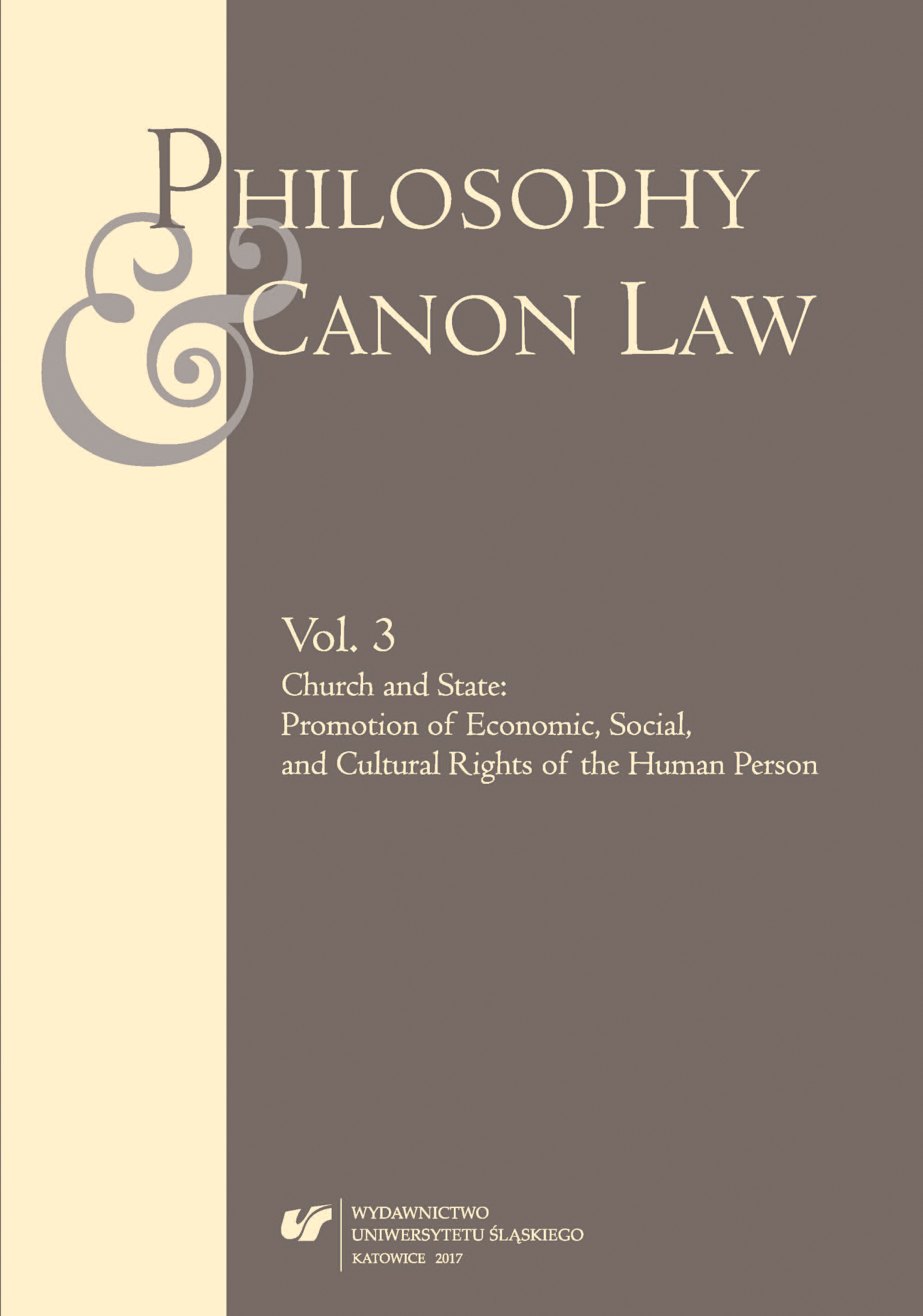Does Labor Law Apply in the Church? An Analysis of the Socio-Legal Conditions on the Example of the Latin Church in Poland
Does Labor Law Apply in the Church? An Analysis of the Socio-Legal Conditions on the Example of the Latin Church in Poland
Author(s): Lucjan ŚwitoSubject(s): Theology and Religion, Welfare services, Law on Economics, Canon Law / Church Law, Sociology of Religion
Published by: Wydawnictwo Uniwersytetu Śląskiego
Keywords: labor law; social insurance; clergy insurance; tax law; employment relationship; agreement unnamed (contractus innominatus)
Summary/Abstract: The article is a reflection on the contemporary socio-legal determinants referring to labour law, on the example of the Church in Poland. The subject undertaken, viewed from the intersection of canon law and Polish law, raises a series of questions, including: Does labour law apply in the Church, and how? Who in the Church is the employee and who is the employer? On the basis of what relationship do people serving various functions in the Church work? The present analysis, along with the referenced cases, clearly shows that although the Church is the employer for many entities and is obliged to comply with labour law, the intersection between canon and state laws can raise many problems of interpretation. The biggest problem concerns the determination by Polish law of the pastoral services of members of the clergy serving as parish priests and vicars. Their services, analyzed at a broad level of contractual relationships, include features so specific that it is impossible to be classified as any of the aforementioned types of contracts. This specificity appears to be clearly perceived by Polish legislation, which emphasizes its distinctiveness in key legal and social areas, such as the matter of insurance and taxation. The services provided by members of the clergy, assessed through the secular optics of the law, should be considered an innominate contract (contractus innominatus). Such an agreement, however, does not carry with it the entitlements that result from an employment contract relationship.
Journal: Philosophy and Canon Law
- Issue Year: 2017
- Issue No: 3
- Page Range: 163-176
- Page Count: 14
- Language: English

